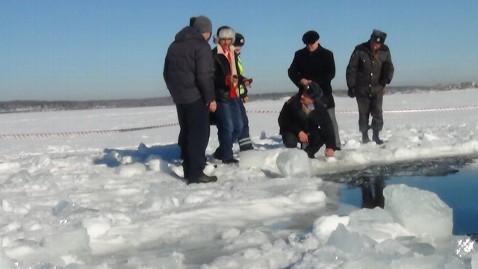CHICAGO (AP) — Drug overdose deaths rose for the 11th straight year, federal data show, and most of them were accidents involving addictive painkillers despite growing attention to risks from these medicines.
"The big picture is that this is a big problem that has gotten much worse quickly," said Dr. Thomas Frieden, head of the Centers for Disease Control and Prevention, which gathered and analyzed the data.
In 2010, the CDC reported, there were 38,329 drug overdose deaths nationwide. Medicines, mostly prescription drugs, were involved in nearly 60 percent of overdose deaths that year, overshadowing deaths from illicit narcotics.
The report appears in Tuesday's Journal of the American Medical Association.
It details which drugs were at play in most of the fatalities. As in previous recent years, opioid drugs — which include OxyContin and Vicodin — were the biggest problem, contributing to 3 out of 4 medication overdose deaths.
Frieden said many doctors and patients don't realize how addictive these drugs can be, and that they're too often prescribed for pain that can be managed with less risky drugs.
They're useful for cancer, "but if you've got terrible back pain or terrible migraines," using these addictive drugs can be dangerous, he said.
Medication-related deaths accounted for 22,134 of the drug overdose deaths in 2010.
Anti-anxiety drugs including Valium were among common causes of medication-related deaths, involved in almost 30 percent of them. Among the medication-related deaths, 17 percent were suicides.
The report's data came from death certificates, which aren't always clear on whether a death was a suicide or a tragic attempt at getting high. But it does seem like most serious painkiller overdoses were accidental, said Dr. Rich Zane, chair of emergency medicine at the University of Colorado School of Medicine.
The study's findings are no surprise, he added. "The results are consistent with what we experience" in ERs, he said, adding that the statistics no doubt have gotten worse since 2010.
Some experts believe these deaths will level off. "Right now, there's a general belief that because these are pharmaceutical drugs, they're safer than street drugs like heroin," said Don Des Jarlais, director of the chemical dependency institute at New York City's Beth Israel Medical Center.
"But at some point, people using these drugs are going to become more aware of the dangers," he said.
Frieden said the data show a need for more prescription drug monitoring programs at the state level, and more laws shutting down "pill mills" — doctor offices and pharmacies that over-prescribe addictive medicines.
Last month, a federal panel of drug safety specialists recommended that Vicodin and dozens of other medicines be subjected to the same restrictions as other narcotic drugs like oxycodone and morphine. Meanwhile, more and more hospitals have been establishing tougher restrictions on painkiller prescriptions and refills.
One example: The University of Colorado Hospital in Aurora is considering a rule that would ban emergency doctors from prescribing more medicine for patients who say they lost their pain meds, Zane said.
___
Stobbe reported from Atlanta.
___
Online:
JAMA: http://www.jama.ama-assn.org
CDC: http://www.cdc.gov
___
AP Medical Writer Lindsey Tanner can be reached at http://www.twitter.com










